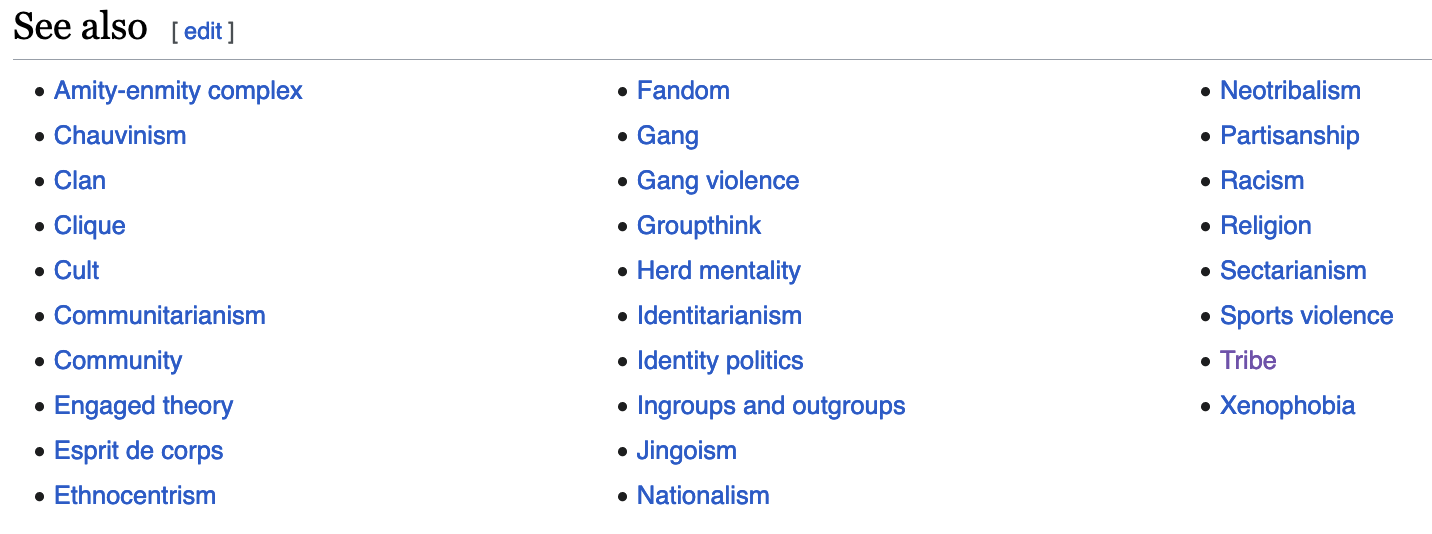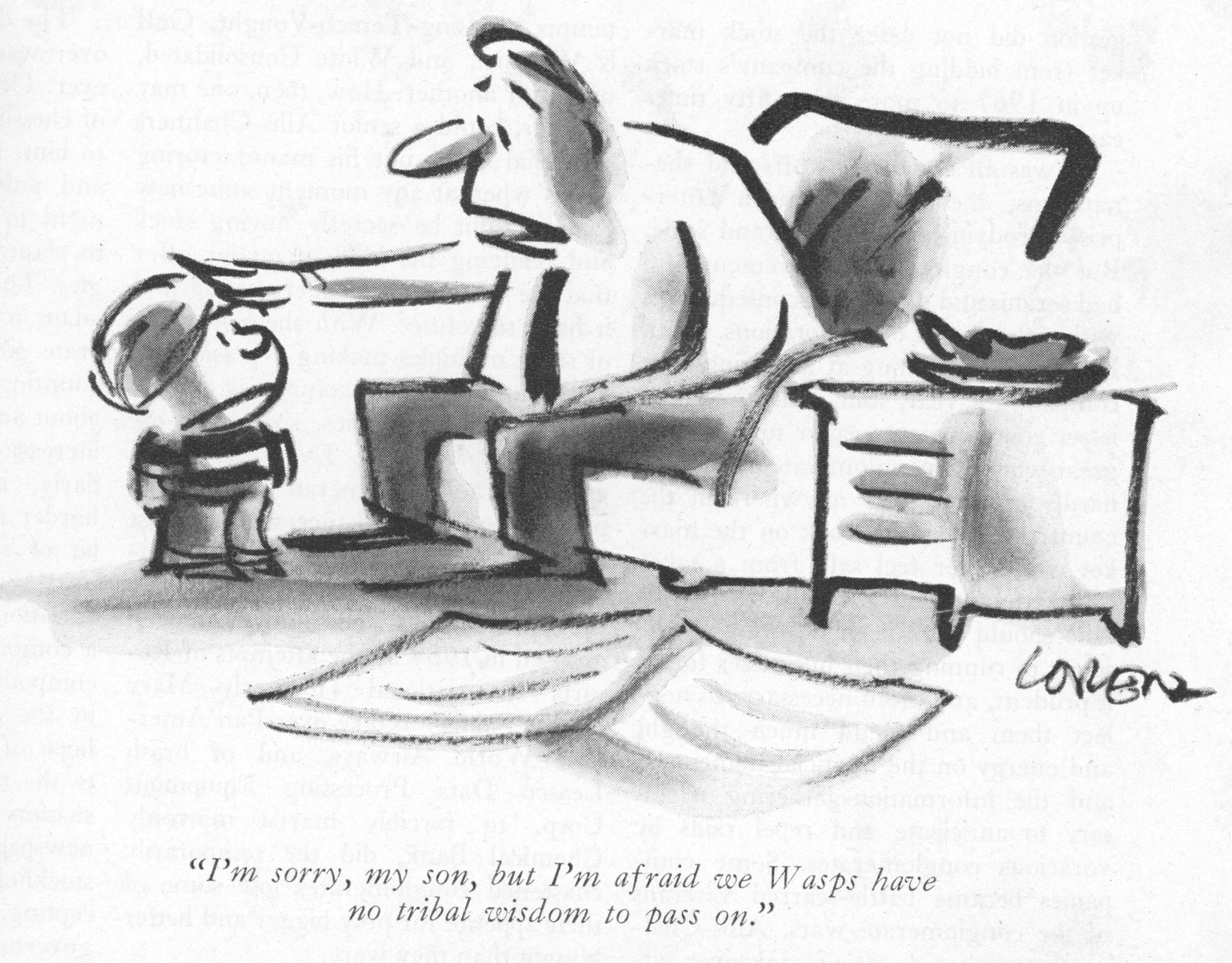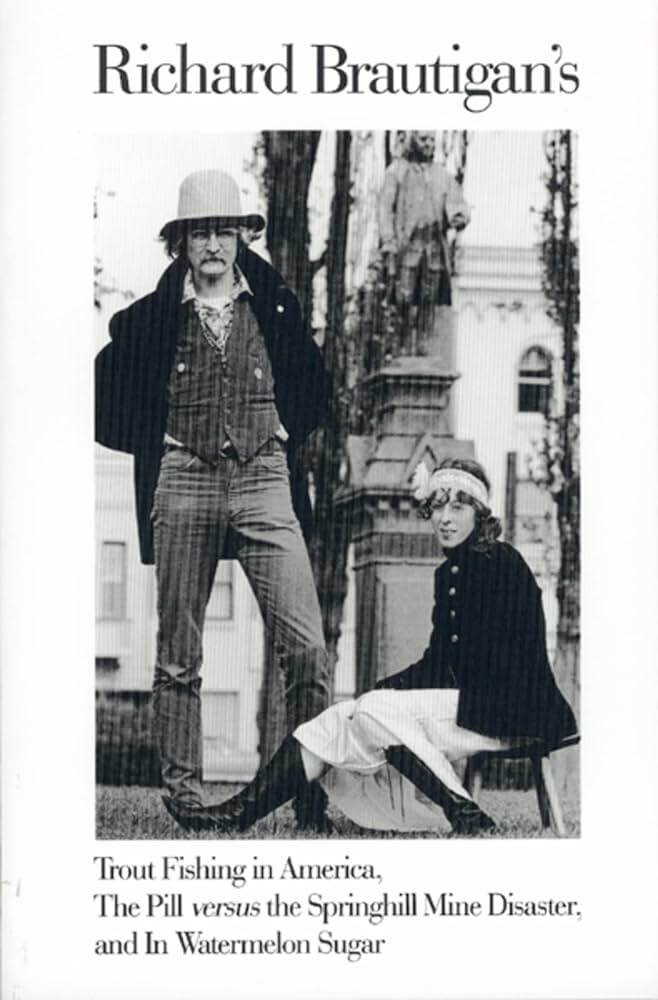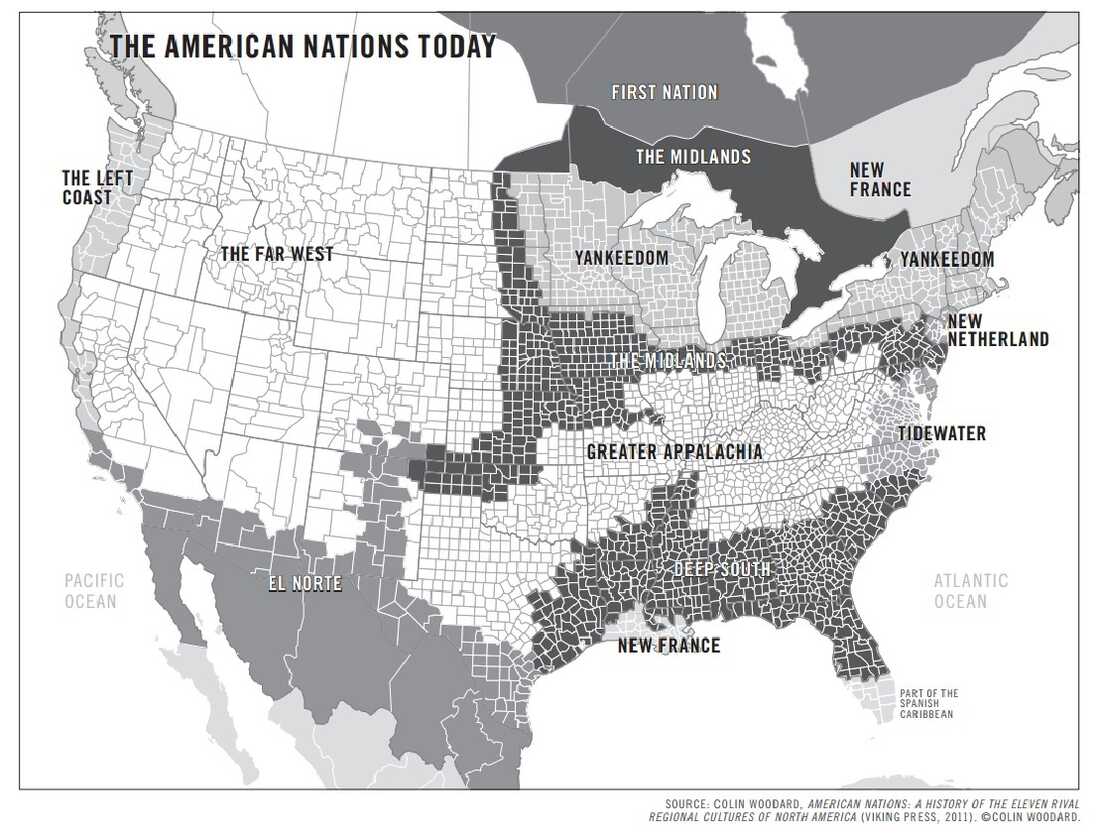
* * * * *
Tribes Served by US Department of the Interior and Canadian First Nations
* * * * *
or
Who Are Your Peeps?
(see Community, July 2023 Question)
'Tribe' in Merriam-Webster:
- a social group made up of many families, clans, or generations that share the same language, customs, and beliefs.
- a group of persons with a common character, occupation, or interest.
- a group of related plants or animals.
...definition is contested, in part due to conflicting theoretical understandings of social and kinship structures, and also reflecting the problematic application of this concept to extremely diverse human societies....Matthew Ortoleva noted that "like the word Indian, tribe is a word that has connotations of colonialism."...
The word "tribe" can be defined to mean an extended kin group or clan with a common ancestor, or can also be described as a group who share the common interest of mutual survival and preservation of a common culture. The proverb "birds of a feather flock together" describes homophily, the human tendency to form friendship networks with people of similar occupations, interests, and habits...The complexity of this corner of the anthropological lexicon is nicely sketched in this sidebar to 'Tribalism':Tribalism implies the possession of a strong cultural or ethnic identity that separates one member of a group from the members of another group. Based on strong relations of proximity and kinship, as well as relations based on the mutual survival of both the individual members of the tribe and for the tribe itself, members of a tribe tend to possess a strong feeling of identity. Objectively, for a customary tribal society to form there needs to be ongoing customary organization, inquiry, and exchange. However, intense feelings of common identity can lead people to feel tribally connected.

* * * * *
Tribes Served by US Department of the Interior and Canadian First Nations
* * * * *
But is "tribe" the best way to describe the loose alliances of today, groups that transcend the old ties of kinship and language, united instead by ideology or aesthetic (itself often a manifestation of ideology)? The English language fails us. A clan is related by blood, a generation by age, a faction by politics, a sect by religion, a cabal by conspiracy. A clique doesn't scale beyond the intimacy of friends (and enemies), and a gang has come to be deployed almost exclusively in matters of youth and crime. To call a group a subculture presumptively shunts it to the margins.There is no English correlative to the Chinese suffix zu, which applies to both "clan," zongzu, and "ethnic group," minzu, and has been recently adapted as latter-day ethnographic slang, delineating the likes of yi zu, the ant tribe, college graduates from the provinces who move to the cities and wind up toiling at poverty level, and ken lao zu, the bite-the-old-folks cohort, young people who do no work and leech off their parents. Still, these are nicknames imposed by observers, not voluntarily chosen identities or loyalties...
after Europeans began to explore other regions in the 15th century, the word "tribe" took on the shadow of colonialism, as a label reserved for non-Western peoples who were seen to represent an earlier and implicitly inferior state of social evolution.
...NO OTHER word in English carries the same promise of a family beyond family. It's a newly urgent notion in the West today, and to focus only on the clashes between partisans in the political sphere is to ignore both the multiplicity of tribes and how they bring vigor to public life. The strength of a culture lies not in its promotion of a single way of being but in its ability to sustain a diversity of viewpoints. How else are ideas generated but through exchange and debate, polyphony rather than a single voice? Among the groups celebrated in the pages that follow, borders are fluid; these are not hermetic bubbles but ever-expanding spheres. For some, membership is testament to a crucible of experience.
... true tribes shuck off labels, resist easy slotting within an index. They're instinctual, constantly shape-shifting, drafters of their own fates. Whether rabble-rousers or quiet meditators, crusaders on a mission or proclaimers of unexpected beauty, they are family: individuals who choose to become one, and make of that communion the beginnings of a new world.

When I first saw this photo, 1968 or so, I remember thinking that I was looking at members of a Tribe:
...and so I was: the Hippies of 1966==> were surely a Tribe, with complications and erm... benefits.
Who is appropriating what from whom?
* * * * *
Ruth Benedict used the terms to characterize cultures that value restraint and modesty (Apollonian) and ostentatiousness and excess (Dionysian).
An example of an Apollonian culture in Benedict's analysis was the Zuñi people as opposed to the Dionysian Kwakiutl people.
Here's a Gallery of Cultural Appropriation videos
and another with examples of Cosplay
...and since The Tibetan Book of the Dead was mentioned as an example of appropriation...
* * * * *
So who's my tribe? My first intuition was as follows:
They are mostly pretty harmless, and more or less useless.
The tribe mostly didn't breed, or did so long ago and far away
that their progeny have been recruited to different and distant tribes.
On further reflection,
I realize that in St. George I belong to the From Away tribe,
most of whom are retirees. It's not a corporate group,
though some acquaintanceships occur, and more would
if I was to seek others in the Library or other Volunteering opportunities.
And in terms of time spent and acquaintances made, it's the Yoga tribe...
(which has now several sub-tribes in St. George)
And of course I am a member of the
Home Kitchen Cafe Regulars tribe,
at the Most Favored Nation level.
I know the secret handshake, and the company song,
and even wear the HKC fleece.
(I've enjoyed enumerating a lifetime of tribes I have been in and around, and considering their dynamics)
a Gallery of tribes, just a beginning
* * * * *
Colin Woodard's American Nations: A History of the Eleven Rival Regional Cultures of North America sketched
a tribal map of North America
as an epic of territorial capture in 18th and 19th century expansions.

Tribal identity is alterable, might be multiple, could be sub-sub-sub-tribal.
And the array of extant tribes waxes and wanes and progresses through time in age-grade cohorts.
Questions of Authenticity may arise, and a claimant to tribal status may be required to prove identity
(see recent cases of "Pretendianism" and wannabe cosplay, and don't miss
the Mayflower descendants, the Daughters of the American Revolution, and Daughters of the Confederacy).
Furry Fandom (Wikipedia)
National Geographic on Furries